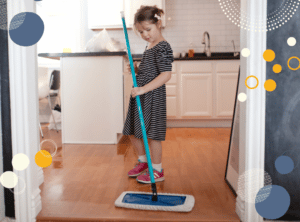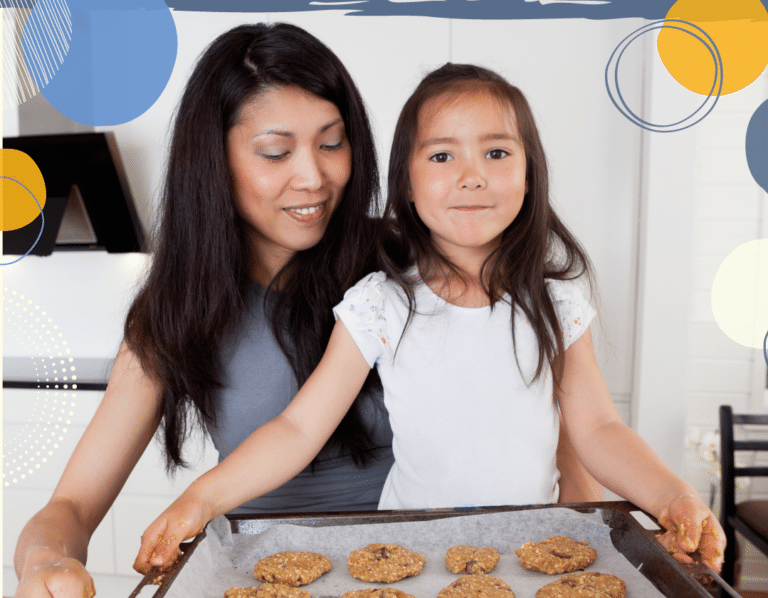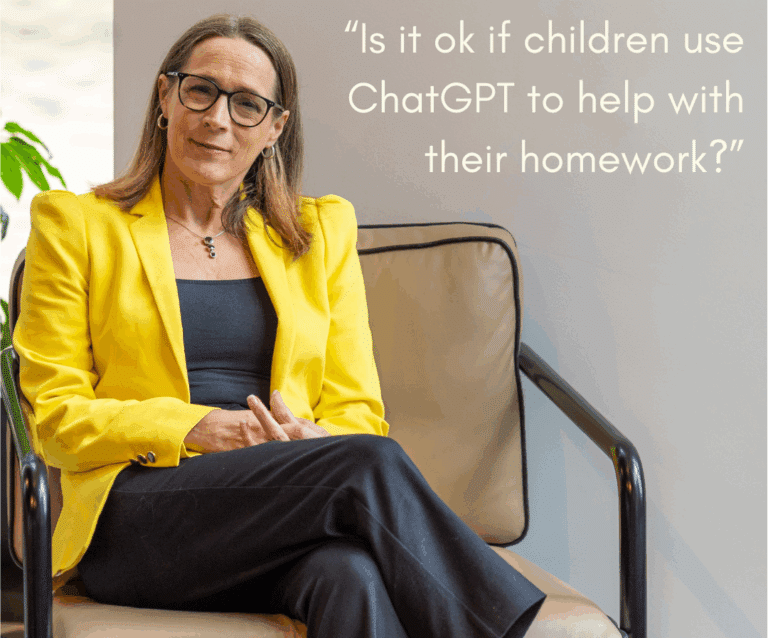15 ways parents can support children to do well at school
There are so many ways parents can support children to do well at school. It isn’t just about helping children learn spellings or times tables – supporting children’s learning is much wider than that (and can be a lot more fun!). Here are 15 ideas that will help you support your child’s learning and help them become resilient independent thinkers.
Support their learning
1. Read with them
Reading with children is one of the best things we can do to support children’s learning. You can encourage reading for pleasure by being a good role model – so, make sure your children see you reading! Even when children have become independent readers, reading with them brings extra benefits – because reading isn’t just about the words on the page. Remember to talk around the story. Talk about the characters, anticipate what might happen next and analyse how the story is trying to be interesting.
If talking about books isn’t something that comes naturally to you, watch this 10-minute video for a Story Time demonstration.
2. A regular homework routine
When it comes to homework, focus on process not outcomes, on setting up good study habits rather than on any one individual piece of work to be completed. Set aside a regular study time when all other distractions go off. Keep it short – homework can be split across several nights or, if there is no homework to be done, then use the time for research or reading. Don’t let homework build up into marathon Sunday night battles.
Watch this 10-minute video on How to make homework a happy habit for tips on setting up a regular study time.
3. Be encouraging
The best way to motivate children’s learning is to focus on what they are doing well. Show an interest in their schoolwork and praise their achievements. If you are supporting them with homework, focus primarily on encouragement for the parts that are correct. Rather than pointing out all their mistakes or criticising, prompt them to self-evaluate their own work and identify for themselves what they could improve.
4. Incidental learning
Learning isn’t just about schoolwork. One of the best ways parents can support children to do well at school is to make the most of everyday learning opportunities to consolidate knowledge and skills. So, make good use of games and daily life to practise key skills like maths and literacy. If you are baking or cooking with your child, let them read the instructions and measure the ingredients (or double the recipe quantities to make it harder!). Shopping trips and pocket money are great for embedding number knowledge, while board games can boost reading and problem-solving skills.
Got a reluctant reader? Take a look at these 20 ways to boost children’s reading skills (that don’t involve books!).
5. Interesting conversations
Being able to articulate their thoughts and engage in dialogue is so important for children. Good conversations build young children’s thinking and language skills. Start great conversations by asking intriguing questions. You could try asking “How would you describe an elephant to a Martian?” or “What would happen if rain was made of chocolate?” Rather than asking your child what they did at school today, model how to have a conversation by telling them something interesting that happened in your day. (Take a look at How to start good conversations with kids for more ideas and resources on this!).
Use downtime positively
6. Make space for unstructured free play
It’s important for children to be involved in positive extracurricular activities but don’t over-schedule. Children need time and space for imaginative free play. Free play is that type of play that is totally child-led and child-driven in which children get to follow their imaginations, create play worlds and get hands on with whatever is available (think bored Sunday afternoons building dens out of sofa cushions!). The more varied children’s play, the more flexible and adaptive their brains become. So build in some downtime and leave them to it!
Watch our 15-minute video on How free play can give you more time and build your child’s brain for lots more detail on this.
7. Foster their passions
Children learn best when they are motivated and engaged. Encourage your child to explore their favourite subjects in projects that expand their skills. For example, you could get them involved in a practical project to apply their learning in a way that fits with their interests – such as making a bird box, redecorating their room or campaigning to improve the local area. If football is their passion, then read together about famous players, or talk about game strategy, or help them create an info-guide or fan page. When they are truly interested in the topic, it doesn’t feel like learning!
8. Visit interesting places
History comes to life when we get to touch real artefacts from the past or walk the corridors of medieval castles. The science that children can explore in the Science Museum would take a whole year of lessons to cover. Watching insects clamber across grass and crumpling a dried leaf in your hand is precious learning about nature. So, get your kids out and about as much as possible – to the local park, the woods, farms, historic houses, museums, whatever is accessible locally – and let them get up close and personal with learning.
9. Support friendships and social interaction
Being able to get on with peers, navigate friendships and work as a team are all key social skills that children need in order to make the most of school. Teach children to be a good friend and see things from others’ perspectives. Children need lots of opportunities to practise social and friendship skills. Parents can help by encouraging children to participate in group activities or clubs and by facilitating play dates and getting together with friends and family who have children of all ages. Parents can also support children’s social skills through clear boundaries on how we treat others.
See Helping children with friendship problems for ideas on how to positively support any difficult friendship issues.

Helping out around the house provides opportunities for children to develop new skills, experience success and build good self-esteem. Chores also help children refine their motor skills, learn basic life skills, apply their science learning in practical situations and develop family team-working. By looking after their possessions and tidying up after themselves, children develop independence and a positive attitude – which are key factors for shining at school.
Prioritise resilience and well-being
11. Teach them to fail positively
Failure is an essential part of learning. It is a step on the learning journey, not the end of it. By celebrating failure as a good thing and encouraging children to learn from mistakes and try again, we help them to develop persistence and the right attitude to be a good learner. Next time your child gets something wrong, say “That’s brilliant! Now you know how not to do it! I can’t wait to see what you do next.”
If failure or perfectionism is something your child struggles with, you might want to take a look at these Growth Mindset Books for Younger Children.
Whenever possible, challenge yourself to get out of your children’s way and let them try. By stepping back and letting children do it, we send the signal ‘You’ve got this.’ Even if they don’t succeed, we can help them interpret their experiences positively by drawing attention to the progress they are making (‘You nearly did it! That was better than last time! You tried really hard!‘).
The Work/Parent Switch, Anita Cleare
12. Praise effort and progress
We can also encourage a positive attitude to learning by focusing our praise on the effort children put in and the progress they make (no matter how small). Keeping going and persevering in the face of difficulty is hugely important for doing well at school. Parents can help by praising children’s efforts rather than their achievements, and by linking effort and progress (even if this is incremental). Even if they can’t do it yet, if they keep trying, they will get better at it.
For a quick demo on how to praise to build self-esteem, watch this 3-minute video.
13. Encourage them to set goals
Being able to set goals and work towards them underpins academic and workplace success. It takes practise for children to learn to set realistic goals but parents can support children by helping them to break down their goals into small steps or mini-goals. Asking questions like “What could you do today/this week to get a little closer to that goal?” are really useful here.
14. Encourage a healthy lifestyle
Eating well and getting enough sleep and exercise are simple ways parents can support children to do well at school. If you want your child to be a good learner, make sure they spend lots of time running around and oxygenating their brains!
Read our tips from a nutritionist on How to feed your child to support their learning.
15. Put limits around screens
Screens can facilitate learning but spending too much time on screens gets in the way of all the other things that support children’s learning. Put limits around technology and stick to them consistently in order to ensure a balanced childhood full of rounded learning.
Want to know how much tech time is too much tech time? Read the official guideline here.
Have you tried these ideas? Or do you have a suggestion for ways parents can support children to do well at school? Let us know in the comments below!
You might also like to read: Encouraging your child to read books: what works?
*This post contains affiliate links. That means that if you click through from this post and make a purchase, the Positive Parenting Project will receive a small commission. There is no additional charge to you. This helps us to keep providing free supportive content for our readers. For more info, see Disclosure Notice.








Leave a Reply